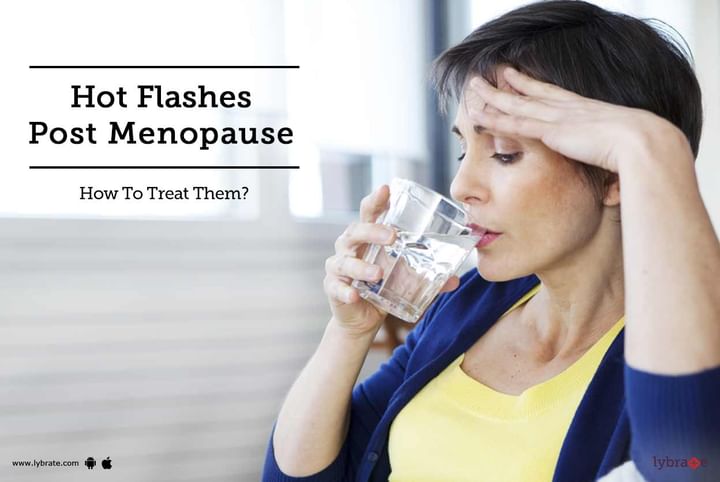Hot Flashes Post Menopause - How To Treat Them?
How to treat hot flashes after menopause?
A hot flash, at times called a hot flush, is a speedy sensation of heat and once in a while a red, flushed face accompanied by sweating. The exact reason for hot flashes is not known, but rather might be associated with changes in circulation. Hot flashes happen when the blood vessels close to the skin's surface widen to cool. A woman may likewise sweat to chill off her body. What is more, a few ladies have a fast heart rate or chills. Hot flashes are the most common symptom of menopause.
Hot flashes differ among women experiencing menopause. A few of them have hot flashes for a brief span during menopause. Other ladies may have hot flashes forever. For the most part, hot flashes are less extreme over time. You most likely cannot maintain a strategic distance from hot flashes during menopause, yet there are things that might make them more serious. To prevent hot flashes, keep away from these triggers:
- Stress
- Caffeine
- Liquor
- Spicy nourishments
- Tight clothing
- Heat
- Tobacco or smoke
Different things you can do to keep hot flashes under control include:
- Stay cool: Keep your room cool during the evening. Use fans during the day. Wear light layers of garments with regular strands, for example, cotton. Using cooling pads to lay your head on during the evening may be useful.
- Breathing: Try deep and moderate stomach breathing (six to eight breaths for each moment). Try to relax for fifteen minutes in the morning, fifteen minutes at night and at the onset of hot flashes.
- Exercise: Exercise every day. Walking, swimming, moving, and bicycling are all great ways to keep fit and keep hot flashes at bay.
- Hormone substitution treatment: Talk to your specialist about taking hormone substitution treatment, or HRT, for a brief span – less than 5 years. This treatment prevents hot flashes from occurring in numerous women. In addition, it can help different symptoms of menopause, including vaginal dryness and mood issue. Remember that when you quit taking HRT, the hot flashes may return. Short-term HRT has a few dangers, including blood clots and gallbladder aggravation. In case that HRT is not a good fit for you, there are different medicines that may offer help.
- Botanicals and herbs: Some herbs can help soothe the hot flashes. These are:
- Soy items: Plant estrogens, found in soy items, are thought to have weak estrogen-like impacts that may decrease hot flashes. Soy food and not supplements are prescribed.
- Dark cohosh: A few studies propose that dark cohosh might be useful in the short-term (six months or less) to treat hot flashes and night sweats. Symptoms include gastrointestinal problems.
- Evening primrose: This oil is another plant that is regularly used to treat hot flashes. Symptoms include queasiness and loose bowels. Ladies taking certain medicines, for example, blood thinners, should not take evening primrose oil.
- Flaxseed: This is thought to diminish the side effects of menopause, especially hot flashes. It's otherwise called linseed. If you wish to discuss about any specific problem, you can consult an Endocrinologist.



+1.svg)
